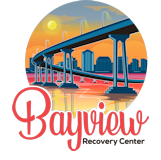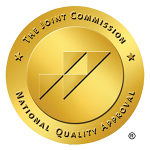Treatment for Depression and Addiction
Depression is a prevalent mental health condition, affecting approximately 18.5% of adults in the United States. In California, the prevalence ranges from 12.7% to 27.5%, with a median of 19.9%. Notably, nearly one-third of individuals with major depression also experience an alcohol use disorder.
While some may turn to substances as a coping mechanism, this can lead to a harmful cycle of dependency. Bayview Recovery Center in San Diego, California offers specialized treatment programs to address both depression and substance abuse, providing comprehensive care for lasting recovery.
What is Depression?
Depression is a mental health condition that affects how a person thinks, feels, and functions in daily life. It can develop due to genetics, brain chemistry, or life experiences. Stressful events, trauma, or medical conditions may contribute to its onset.
This condition is widespread and impacts millions of people each year. It can interfere with relationships, work, and overall well-being. Many try to manage it alone, but professional support can make a significant difference. Therapy, medication, and lifestyle adjustments are common treatment approaches.
Depression does not define a person, and recovery is possible with the right support. Talking to a mental health professional can be the first step toward improvement. Friends and family can also provide encouragement and assistance. If you or someone you know is struggling, reaching out for help is important in moving forward.
Signs and Symptoms of Depression
Depression can affect emotions, thoughts, and daily activities, making even simple tasks feel overwhelming. It’s more than just feeling sad—it can impact relationships, work, and overall well-being. The symptoms vary from person to person, but common signs include:
- Persistent sadness or low mood – Feeling down most of the time without a clear reason.
- Loss of interest in activities once enjoyed – Hobbies, socializing, or favorite pastimes no longer bring pleasure.
- Changes in appetite or weight – Eating significantly more or less than usual, leading to weight gain or loss.
- Trouble sleeping or sleeping too much – Difficulty falling asleep, staying asleep, or oversleeping regularly.
- Low energy or constant fatigue – Feeling tired even after a full night’s rest.
- Difficulty concentrating or making decisions – Struggling to focus, remember details, or make everyday choices.
- Feelings of guilt, worthlessness, or hopelessness – Constant self-criticism or believing things will never improve.
- Withdrawing from friends and family – Avoiding social interactions and preferring isolation.
- Physical aches or pains with no clear cause – Unexplained headaches, stomach issues, or muscle pain.
Experiencing multiple symptoms for an extended period may indicate depression. If they interfere with daily life, professional help can provide support and guidance. Depression is treatable, and recovery is possible with the right care.
Types of Depressive Disorders
- There are several types of depressive disorders, each affecting people differently. These conditions go beyond temporary sadness and can interfere with daily life. Understanding them can help in finding the right treatment and support.
- Major Depressive Disorder (MDD): Causes persistent sadness, loss of interest, and difficulty with daily activities. Symptoms last for at least two weeks and may reoccur.
- Persistent Depressive Disorder (PDD): A long-term form of depression lasting two years or more. Symptoms may be milder than MDD but still impact daily functioning.
- Bipolar Disorder – Involves extreme mood swings between depressive lows and manic highs. Depressive episodes can feel similar to major depression.
- Seasonal Affective Disorder (SAD): Occurs during specific seasons, usually winter. Reduced sunlight exposure can lead to changes in mood and energy levels.
- Postpartum Depression: Affects new mothers after childbirth. It can cause intense sadness, anxiety, and exhaustion, making it difficult to care for a baby.
- Premenstrual Dysphoric Disorder (PMDD): A severe form of PMS that leads to emotional and physical symptoms before menstruation. It can affect mood, energy, and relationships.
What is the Relationship Between Depression and Substance Abuse?
Depression and substance abuse often go hand in hand, creating a challenging cycle for those affected. Here’s how they are connected:
How Depression and Substance Abuse Are Connected
Depression and substance abuse are closely linked, often influencing each other in harmful ways. Many people use substances to cope with emotional pain. Alcohol or drugs may provide temporary relief, but they can worsen depression over time.
The Impact of Substance Use on Depression
Substance use can change brain chemistry, making depressive symptoms more severe. It can also lead to dependence, creating a cycle that is hard to break. People struggling with both conditions may find it difficult to seek help or maintain relationships.
How Depression Increases the Risk of Substance Abuse
Depression increases the risk of substance abuse, and addiction can make depression harder to manage. Stress, trauma, or genetics may contribute to both conditions. Without treatment, they can impact work, health, and personal life.
The Cycle of Depression and Substance Abuse
The combination of depression and substance abuse can create a cycle that affects nearly every aspect of life. Over time, both conditions feed off each other, making it difficult to break free from the pattern.
How Are Depression and Addiction Diagnosed?
Depression and addiction are diagnosed through a combination of assessments, interviews, and medical evaluations. Mental health professionals consider symptoms, history, and current behaviors to make a diagnosis.
Diagnosing Depression
For depression, the provider may use diagnostic tools like the DSM-5 criteria, which includes mood, energy, and interest changes. A physical exam and blood tests may be conducted to rule out other conditions.
Diagnosing Addiction
When diagnosing addiction, healthcare providers look at patterns of substance use and its impact on daily life. They may ask about frequency, quantity, and any attempts to quit. Both conditions often overlap, so providers will evaluate how each impacts the other.
Both need to be assessed together, as treating only one can lead to relapse. Healthcare providers also consider family history, trauma, and any co-occurring mental health issues. A thorough evaluation helps guide the right approach for diagnosis and treatment. Accurate diagnosis is important for finding effective support and creating an individualized care plan. Professional help can provide the clarity needed for the next steps.
How Should Depression and Substance Abuse be Treated?
Depression should be treated through a comprehensive approach that includes therapy and, if needed, medication. Cognitive-behavioral therapy (CBT) works by recognizing and altering harmful thought patterns to promote healthier thinking. Medication may balance brain chemistry and alleviate symptoms.
Treatment for Substance Abuse
Substance abuse treatment typically involves counseling and support groups to help individuals understand their relationship with substances. Behavioral therapies teach healthier coping skills and strategies for managing triggers.
Comprehensive Approach to Treatment
A combination of therapy services and medication can be highly effective for both depression and substance abuse. Support groups also provide a sense of community and shared experiences.
Recovery often involves ongoing work, including regular check-ins with mental health professionals and the use of coping skills. Maintaining a balanced lifestyle, including exercise, healthy eating, and sleep, can also support long-term well-being.
Each person’s treatment plan should be personalized to fit their unique needs and goals for lasting recovery.
Dual Diagnosis Treatment: Is It The Best Way to Treat Depression and Addiction?
Treating both depression and addiction together is often the most effective way to support long-term recovery. Dual diagnosis treatment allows individuals to work through the underlying causes of both conditions.
When these issues are treated separately, one condition can undermine progress made in treating the other. By addressing them together, treatment becomes more integrated and comprehensive, improving the chances of success.
Each condition can exacerbate the other, making a coordinated approach essential. This method encourages individuals to confront both their mental health and substance use challenges simultaneously.
Customized care that focuses on the unique needs of the individual provides the best foundation for recovery. Ongoing support from healthcare providers, family, and peer groups helps maintain progress throughout treatment.
A collaborative approach promotes lasting healing by tackling the root causes of both depression and addiction. Working on both conditions at the same time helps individuals build stronger coping mechanisms and emotional resilience.
Find Healing From Depression and Addiction at Bayview Recovery Center
Finding healing from depression and substance abuse at Bayview Recovery Center in San Diego, CA offers a comprehensive approach to recovery. Our treatment programs focus on addressing both conditions, using a combination of therapy, counseling, and support groups. This holistic method ensures that individuals receive the care they need for long-term success.
At Bayview Recovery Center, we work with each individual to create a personalized treatment plan tailored to their unique needs. Our environment is supportive and structured, promoting recovery in a safe and welcoming space.
We provide access to various therapeutic methods, including cognitive-behavioral therapy (CBT) and experiential therapies, helping individuals build healthier coping mechanisms. With a focus on both mental and physical health, we offer tools to manage depression and prevent substance use relapse.
If you or a loved one is struggling with depression and addiction, don’t hesitate to reach out. Contact us today to learn more about how we can help guide you on your path to healing.

Alyssa is a licensed Clinical Social Worker and received her Master’s degree from San Diego State University. She has experience working with individuals in recovery of all ages for over eight years. Alyssa has also worked with at-risk homeless foster youth transitioning into independent living along with the families in the neonatal intensive care unit at UCSD.


